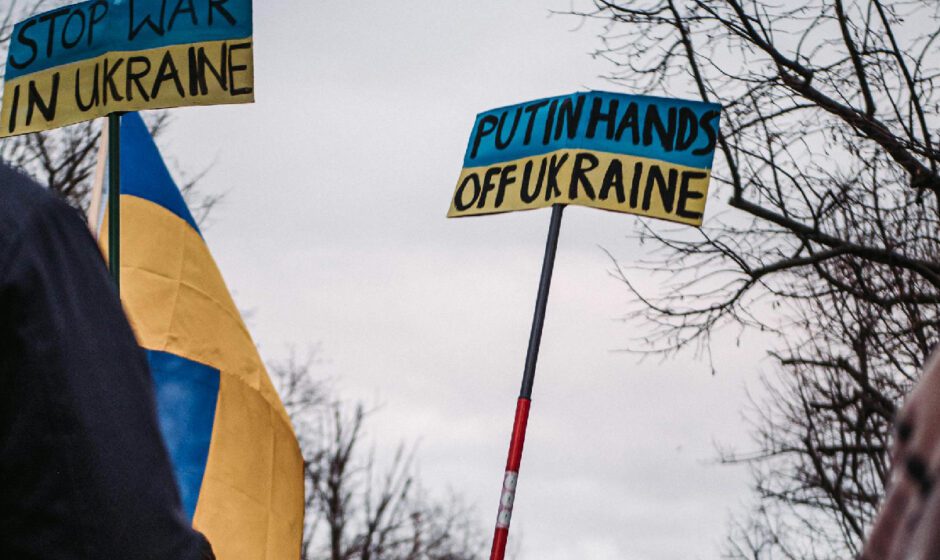Galactday: 55627.7
Russia’s invasion of the democratic nation of Ukraine in 2022 was meant to demonstrate raw power. Instead, it revealed a deeper, structural weakness: the consequences of a leadership culture that cannot tolerate bad news. For decades, Moscow projected an image of invincibility—advanced weaponry, vast resources, and centralized authority. But superpower status requires more than appearances. It requires a functioning feedback loop, where honest assessments inform strategy. In Russia, that loop is broken. Photo by Matti Karstedt
At the core of this dysfunction is fear. Military officers, bureaucrats, and even intelligence analysts understand that delivering bad news carries personal risk. In such an environment, reporting failures becomes optional, and embellishing success becomes survival. The result is a distorted view of reality at the top, where leaders make decisions based on partial or false information. Battlefield setbacks are underreported or misrepresented, economic warnings are softened, and internal dissent is minimized to the point of invisibility.
The human toll of this culture is substantial. Frontline commanders in Ukraine have reportedly faced pressure to achieve unrealistic objectives while concealing logistical shortages or operational failures. Troops suffer from inadequate supplies, poorly planned offensives, and confused orders—all amplified by the inability of subordinates to report problems honestly. For officers, the choice is stark: risk your career or personal safety by telling the truth, or protect yourself and allow the system to degrade further. This dynamic breeds a form of institutional paralysis metastasized by the “Dear Leader Syndrome“, where caution replaces initiative and self-preservation replaces strategy.
Civilians, too, feel the impact. The Russian invasion of Ukraine has disrupted supply chains, inflated prices, and strained social services. Yet State narratives often ignore these realities or spin them as minor setbacks. Russian Citizens are left navigating a world where propaganda clashes with lived experience. Meanwhile, central authorities remain insulated, making decisions based on selective data rather than the ground truth. The gap between perception and reality widens, feeding both inefficiency and public frustration.
This environment also stifles innovation. When the “dear leaders” cannot tolerate criticism or negative feedback, subordinates avoid proposing new approaches, even when existing strategies fail. Experimentation is seen as risky rather than necessary, and lessons from mistakes are ignored. Over time, the organization loses its ability to adapt—a fatal flaw in any conflict, particularly one as dynamic and unpredictable as the russian invasion of Ukraine.
Operationally, the consequences are evident. Russia’s military campaigns have been marked by logistical failures, misallocated resources, and repeated underestimation of Ukrainian resistance to the russian invasion. Strategists relying on filtered or distorted information cannot adjust plans effectively. Troop movements falter, supply lines break down, and morale declines. The illusion of competence is maintained only in reports to the Kremlin; the reality is inefficiency magnified by fear.
Psychologically, the effect is corrosive. Subordinates internalize a constant threat of retribution, creating stress and anxiety that impair judgment. Leaders, cut off from honest feedback, become reactive rather than strategic, issuing directives based on incomplete or overly optimistic information. The system becomes trapped in a cycle: the dear leader cannot tolerate bad news, so subordinates hide it; the leader makes flawed decisions; failures accumulate; and subordinates continue hiding problems to avoid blame. The longer this cycle persists, the weaker the state becomes, regardless of its nominal power.
The russian invasion of Ukraine is a case study in this phenomenon. Russia’s image as a global power—reinforced for years through state-controlled media, military parades, and international posturing—was built on performance and perception. Yet the war revealed the limitations of that image. Military setbacks, territorial failures, and supply chain crises were all magnified by the leadership’s inability to confront uncomfortable truths. Superpower status requires the ability to respond to reality, not just dictate it; without honest information, even a resource-rich state cannot project sustained influence or achieve complex objectives.
Globally, the lesson is clear: fear-driven hierarchies are fragile when based on fragile leaders. Despot’s insulated from reality may temporarily project strength, but the costs accumulate rapidly. Subordinates learn to prioritize self-preservation over problem-solving, institutions lose their adaptive capacity, and even minor failures escalate into crises. In the case of Russia, the Ukraine invasion demonstrates how internal culture can undermine external might, turning the appearance of power into nothing more than a brittle façade.
in the end, Russia’s struggle is not just about territory or military hardware—it is about the human and organizational costs of an authoritarian system that punishes truth. The inability to confront bad news or opposing vantages weakens decision-making, erodes morale, and limits innovation. For analysts, the invasion is a reminder that superpower status is as much about how a state manages reality internally as it is about how it projects strength externally. In Russia’s case, fear has become a self-imposed limitation, ensuring that the state’s true capabilities remain hidden not just from the world, but from its own leadership.




